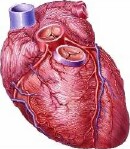
FRIDAY, Dec. 4 (HealthDay News) — Adult stem cells appear to help repair heart attack damage, a new study shows.
The phase 1 study of 53 patients found that stem cells from donor bone marrow promoted the growth of new blood vessels in heart tissue damaged by heart attack.
The patients received the stem cell injections within 10 days of having a heart attack. During follow-up, they were compared to patients who had received a placebo injection.
After six months, those who got the stem cells were four times more likely to be better off overall, pumped more blood with each heartbeat, and had one-quarter as many irregular heartbeats, when compared to the placebo group. There also were no serious side effects with the stem cell treatment, according to the report published in the Dec. 8 issue of the Journal of the American College of Cardiology.
This is the strongest evidence so far that adult stem cells can repair heart attack damage, the Rush University Medical Center researchers said. It had been believed that only embryonic stem cells could turn into heart or other organ cells.
“The results point to a promising new treatment for heart attack patients that could reduce [death] and lessen the need for heart transplants,” Dr. Gary Schaer, head of the Rush Cardiac Catheterization Laboratory, said in a news release from the university.
More information
The U.S. National Heart, Lung, and Blood Institute has more about heart attack.
